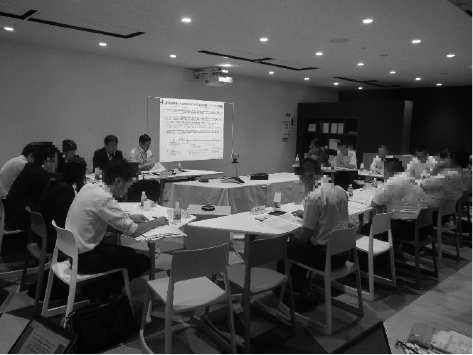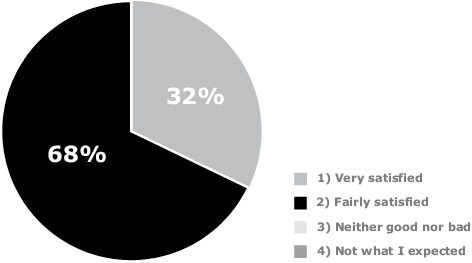Global Site
Displaying present location in the site.
A Common-Sense Approach to the Future — Study Group for Co-creation of New Municipal Services
Co-creation with Local CommunitiesOver the past few years, the acceleration of various trends has begun to put increasing stress on public services in Japan. From sky-rocketing social security costs due to a rapidly aging population and a plummeting birth rate to depopulation in rural areas caused by overconcentration in the Tokyo metropolitan area, Japan's small towns are facing an ever more challenging future. At the same time, struggling municipalities must cope with newly introduced national policies such as the "My Number" identification system and "digital government." All of this has necessitated planning and policy-making for new municipal services (digital transformation in municipal administration) that are different from the conventional services traditionally provided by municipalities. To help solve these issues, the Study Group for Co-creation of New Municipal Services was set up in cooperation with NEC. In this paper, we look at how the study group utilized NEC's technology and know-how to take on the challenges faced by municipal governments around Japan.
1. Introduction
In response to the promulgation of Act on the Use of Numbers to Identify a Specific Individual in Administrative Procedures (My Number Act) in 2013, NEC launched the Study Group for New Municipal Services Related to My Number in 2014 to study issues in public administration related to the My Number system. This study group was established as a sub-working group of the Study Group for Municipality Information System and was meant to provide a forum where NEC and multiple municipal organizations would work together to identify issues and develop solutions which would then be proposed to the Cabinet Secretariat and the Ministry of Internal Affairs and Communications (MIC).
This study group actively pursued these goals throughout 2015 and 2016. In 2017 we decided to expand the scope of the study group's activities beyond the My Number system and launched a new study group called the Study Group for Co-creation of New Municipal Services.
This paper introduces some of the findings of the Study Group for Co-creation of New Municipal Services.
2. About the Study Group for Co-creation of New Municipal Services
2.1 Overview
The Study Group for Co-creation of New Municipal Services is a discussion-style forum targeted at co-creation of new municipal services by leveraging NEC's technology and know-how in order to solve issues faced by municipalities around the country. Four meetings were held in FY 2017. Each meeting consisted of two-part sessions. In the first part, information about the latest trends in public governance was shared, while in the second part participants discussed various ways to achieve new services that focused on improving resident services. After each meeting, participants had an opportunity to experience NEC's latest technology.
The main venue for the meetings was NEC's Tokyo head office (Co-creation Space on the second floor of the NEC headquarters building) (Photo). Meetings were also held at NEC's regional or branch offices in various localities. Both venues were connected by a video conferencing system to facilitate the participation of stakeholders from distant municipalities.

2.2 Discussions at the first meeting
The study group's first meeting was held on June 27, 2017. Twenty-two people from fourteen municipalities (mainly government ordinance cities and core cities) engaged in discussions on the following topics.
Part 1
(1) Review of FY 2016
First we outlined the activities conducted by the Study Group for New Municipal Services Related to My Number.
(2) Information sharing using the Cooperation Network System for Personal Information
We gave lectures on the technical materials published in the digital PMO* of the Cabinet Office regarding the Cooperation Network System for Personal Information — an information sharing platform for the My Number system developed by the Cabinet Secretariat. We also introduced the Inter-municipality Server – a platform built by the Japan Agency for Local Authority Information Systems (J-LIS) which uses application software developed by the MIC.
(3) Operation of Mynaportal and Childcare One-stop Service
We explained how the functions of the Cabinet Secretariat's "Mynaportal" and Childcare One-stop Service. We also offered some tips on how municipalities could implement these services.
(4) Transfer of National Health Insurance from national government to prefectural governments
We explained the revision of the law concerning the transfer of National Health Insurance based on the material provided to local governments by the Ministry of Health, Labor and Welfare (MHLW) and the All-Japan Federation of National Health Insurance Organizations. We also discussed various other matters that local governments need to handle.
Part 2
(1) Public and private sector data utilization (commitment to non-identifiable processed information)
In conjunction with enforcement of the Basic Act on the Advancement of Public and Private Sector Data Utilization, Revised Act on the Protection of Personal Information, and Revised Law for the Protection of Personal Data Held by Administrative Organs, anonymized data (non-identifiable processed data) has become available to private enterprises. We explained what this all meant and engaged in discussions on potential issues related to this.
(2) Service counter reform (utilization of AI at public service counters)
Discussions were held revolving around NEC's promotion of the idea of using NEC the WISE — a portfolio of leading-edge AI technologies developed by NEC — at public service counters.
2.3 Discussions at the second meeting
The study group's second meeting was held on August 25, 2017. The following topics were discussed.
Part 1
(1) Information sharing using the Cooperation Network System for Personal Information
Following up on discussions at the first meeting, the latest information uploaded to the digital PMO was classified and explained.
(2) Operation of Mynaportal and Childcare One-stop Service
Again following up the first meeting, we classified and explained the latest information uploaded to the digital PMO.
(3) Insurer Effort Support System
We talked about trends in the national health insurance and public nursing care insurance areas as they related to the Insurer Effort Support System implemented by the MHLW.
Part 2
(1) Introduction of a use case in public and private sector data utilization (commitment to non-identifiable processed data)
We discussed a use case hypothesized by NEC — a usage example of non-identifiable processed data when a new store is opened.
(2) Service counter reform
We gave examples of the implementation of MIC's Operational Reform Model Project in FY 2016 and FY 2017 (the public recruitment to submit ideas for this project is planned in FY 2018). We also introduced a prototype we are developing that is tentatively called Co-creation Knowledge AI.
(3) Work style reform
We talked about NEC's commitment to work style reform.
Exhibition
We showed various solutions based on new technology, enabling participants to look them over after the meeting.
Aerial projection system / Chatbot / Electronic signage solution / Non-identifiable processed information
2.4 Discussions at the third meeting
The third meeting of the study group was held on October 20, 2017. The following topics were discussed.
Part 1
(1) Information sharing using the Cooperation Network System for Personal Information
Following up the first and second meetings, the latest information uploaded to the digital PMO was classified and explained.
(2) Healthcare and nursing care reform
We gave an overview of the revisions to laws pertaining to the Medical Care System for the Elderly in the Latter Stage of Life and to the National Health Insurance, explaining how these would impact local public administrative services.
(3) Exhibition at "Computerization Local Authorities 2017"
We gave an overview of the exhibition in the NEC booth at an event called "Computerization Local Authorities 2017," held by the J-LIS on November 9 and 10, 2017. We also explained what NEC would propose at the vendor presentation (Fig. 1).

Drawing on what it gleaned from the study group's discussions, NEC put together a vendor presentation for the exhibition entitled "A New Society Based on Municipal AI and My Number". This presentation was well received by the audience, which included a large number of staffers from various local governments and organizations.
Part 2
(1) Promotion of IoT in municipal operations
We invited Mr. Akihira Yoshimoto, Senior Director of the Planning Department at the Association for Promotion of Public Local Information and Communication — an extra-governmental organization of the MHLW — to give a lecture on the latest work done by the Local IoT Network of Cross-sector Supporters (LINCS) and the Committee for the Project for Promotion of Local Private and Public Sector Data Utilization.
(2) Public and private sector data utilization (commitment to non-identifiable processed information)
Drawing on our research and what we learned from the study groups, we devised a set of validation tests that would use municipal authorities as the testing field. We held some discussions related to this topic and ultimately began running our tests in cooperation with one of the municipal organizations that had participated in the meeting.
(3) Service counter reform.
We presented NEC's proposal for the MIC's Operational Reform Model Project. We also presented a plan for validation tests using an automatic response service (chatbot) and held discussions about the plan. In accordance with this plan, we built an automatic response service tentatively called Co-creation Knowledge AI, which would automatically answer general questions from residents. We have begun testing the Co-creation Knowledge AI to refine accuracy.
Exhibition
We showed various solutions based on new technology, enabling participants to look them over after the meeting.
Integrated GIS system / My Number card reading using a smartphone / Non-identifiable processed information
2.5 Discussions at the fourth meeting
The study group held its fourth meeting on January 19, 2018. The following topics were discussed.
Part 1
(1) Information sharing using the Cooperation Network System for Personal Information
The latest information uploaded to the digital PMO — which elaborated on issues still remaining after the full-fledged launch and revision of the layout of the July 2018 data — was classified and explained.
(2) Healthcare and nursing care reform
We held discussions on the following aspects of healthcare:
- Incentives for health insurance
- Incentives for nursing care insurance
- How to meet the requirements regarding notification of medical expenses when filing tax returns
- How to handle online qualification verification systems.
(3) Revision of the Family Registration Law and reform of the tax system
We classified the materials published by the Ministry of Justice (MOJ) and the MIC and explained some of the ways in which the following legislative system reforms would be likely to affect local authorities.
- Introduction of the My Number system in areas relevant to the Family Registration Law
- Digitization of the Notice for the Determination of the Amount of Special Collection of Individual Inhabitant Tax (Form No. 3 Appendix)
- Turning the Individual Inhabitant Tax into a current year taxation system
Part 2
(1) Public and private sector data utilization (commitment to non-identifiable processed information)
The local authorities which had participated in the validation tests presented their results and issues.
(2) Service counter reform
- Co-creation Knowledge AI (tentative name)
The nine participating organizations and NEC tested, evaluated, and improved the Co-creation Knowledge AI repeatedly until we felt that we had a achieved an appropriate level of accuracy. The results of these tests showed that we were able to successfully improve AI accuracy. - Improvement of efficiency of tasks using electronic signage and robotic process automation (RPA)
We presented NEC's proposal where application form entry at a municipal office service counter would be digitized using a tablet and electronic signage and the data would be registered in a mission-critical system using RPA. Discussions followed the presentation.
- *Stands for project management office. It's a division or structural system that supports management of individual projects within an organization.
3. Conclusion
When the study group had finished all its meetings, participants were asked to complete a questionnaire. The great majority indicated satisfaction with the process as shown in Fig. 2.

We also received comments from participating local authorities saying that our efforts for co-creation of new municipal services were important and that we were helping to minimize the gap between the actuality of day-to-day tasks at the local level and the national directivity and technological evolution. Unlike one-to-one validation tests, the meetings of this study group made it possible to create more practical solutions through repeated discussions with multiple organizations. This is evident, for example, in our successful creation of a new solution that combined AI and the My Number system.
We are confident that through our commitment to co-creation activities with local municipalities, we can continue to contribute to the solution of many of the challenges that now confront the public sector at every level from village to prefecture. Combining human intuition, common sense, and the most up-to-date AI and data analysis technology, we believe that these activities can make a positive contribution to building a better future by creating the fundamentals that the future will take for granted.
Authors' Profiles
General Manager
ID Business Promotion Division
Senior Expert
ID Business Promotion Division
Community Solutions Division
Senior Expert
Community Solutions Division
Manager
ID Business Promotion Division
Manager
Community Solutions Division
ID Business Promotion Division
